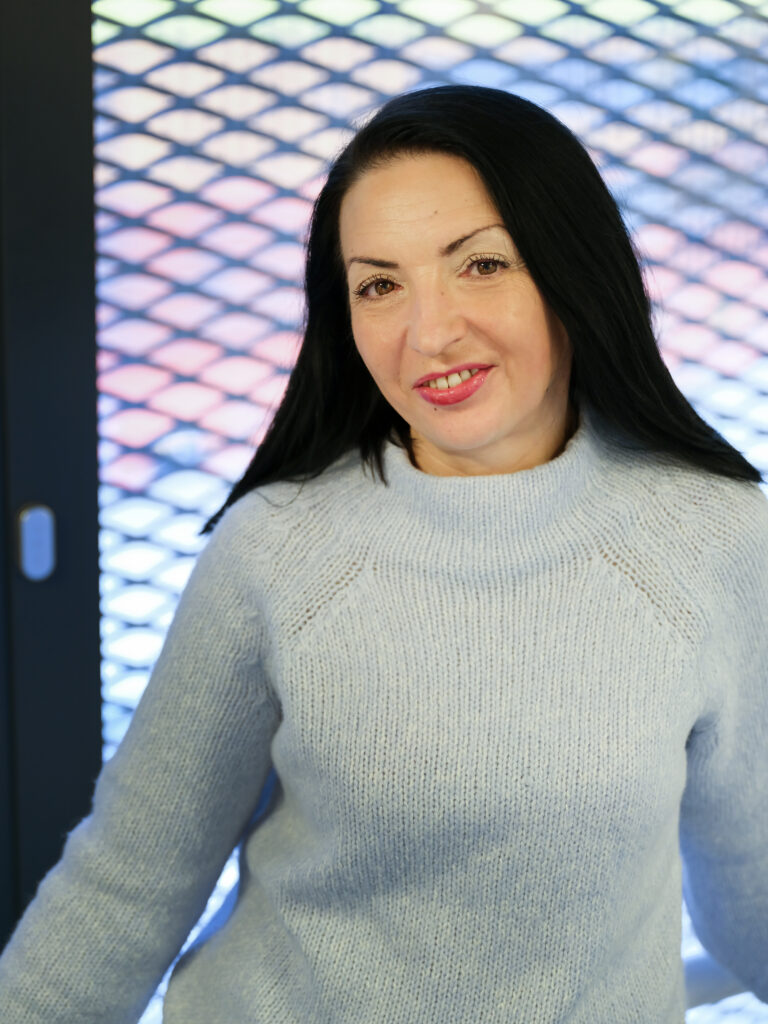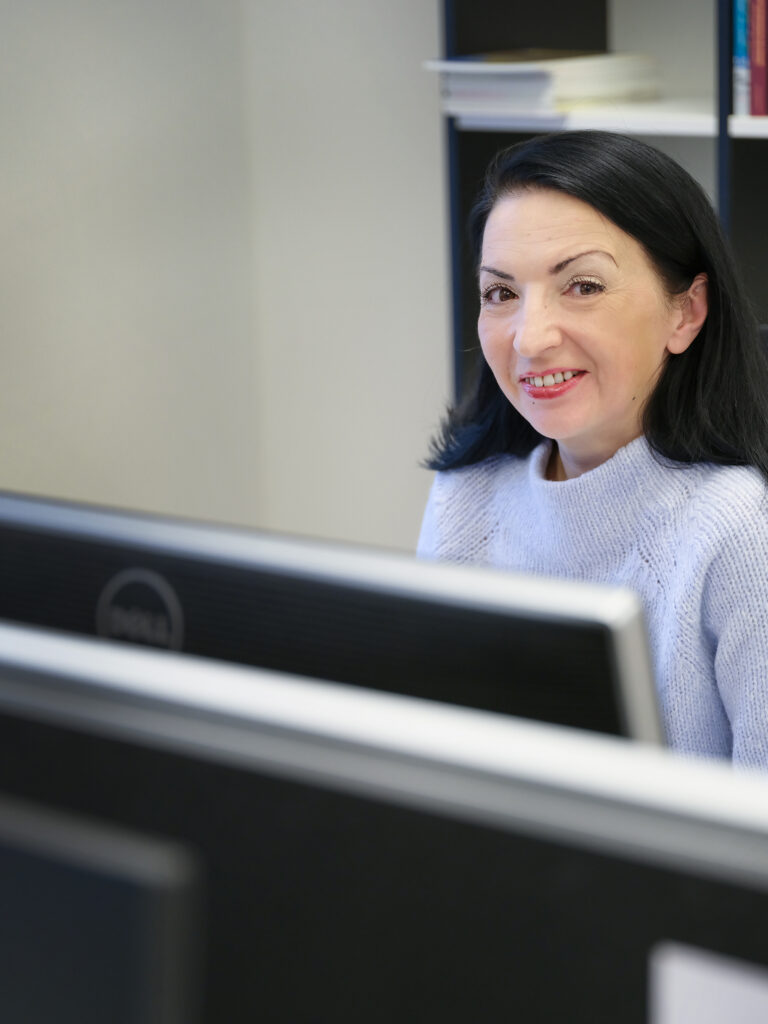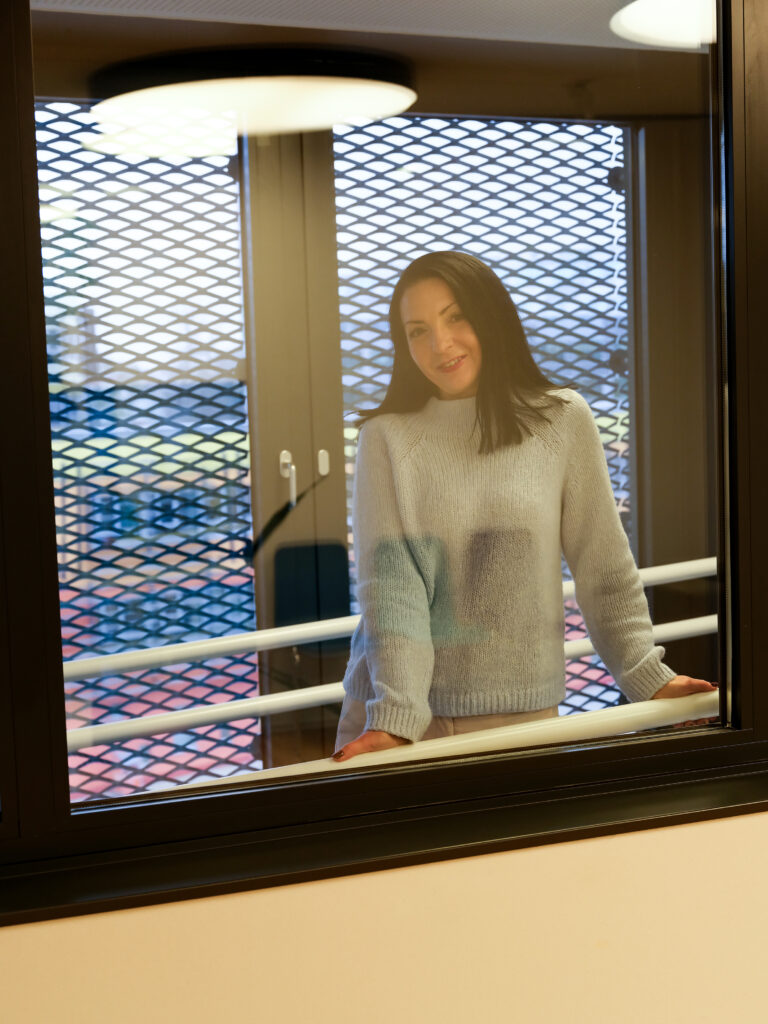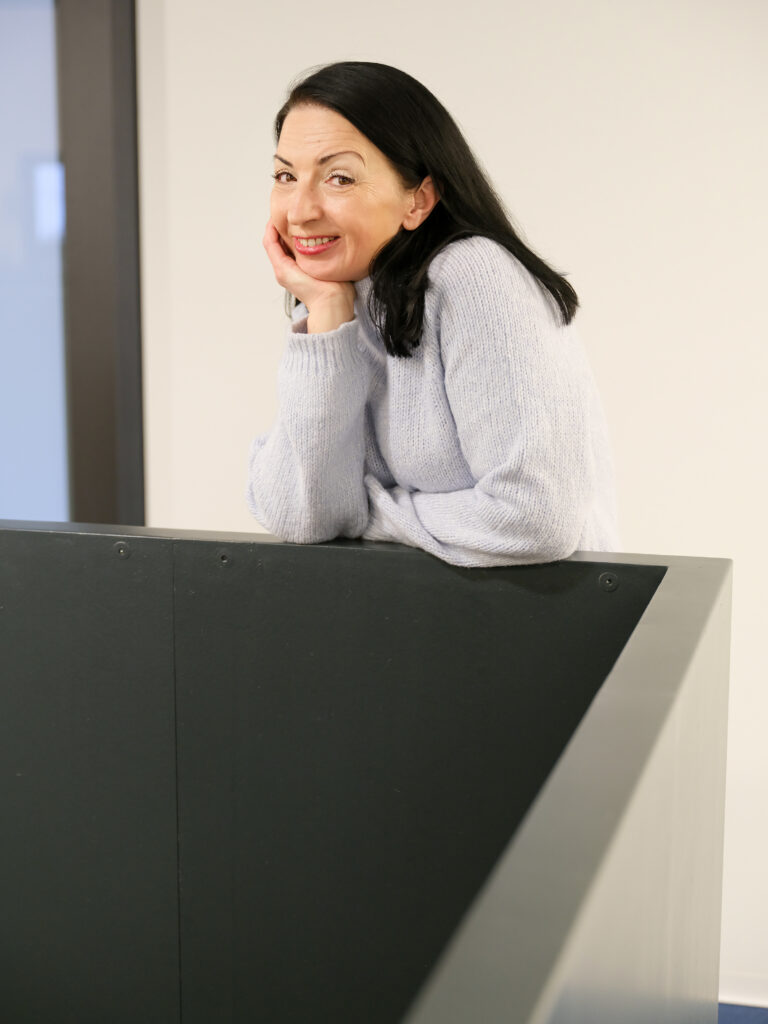
18 February 2025
Oksana Denys: “I consider participating in the program a significant achievement in itself”
Oksana Denys, Professional Integration HUB 2.0 Program Participant (Institute for Social Policy, Vienna University of Economics and Business)
Intro
- Age: 49 years old
- City in Ukraine where you lived before the full-scale invasion (forced relocation): Kyiv
- Specialization: Researcher, Scientist, Doctor of Economic Sciences
PROFESSIONAL BACKGROUND
My career path in Ukraine was very successful. Before the full-scale invasion, I worked as a Professor and an Associate Professor at leading universities in Ukraine. Before my tenure at the universities I was employed as a Research Officer at the Institute of Regional Research under the National Academy of Sciences of Ukraine. Besides, I was a member of the working group for several international projects supported by the UN Global Compact in Ukraine, the International Finance Corporation, and other organizations.
My first applied research, which I conducted for my diploma thesis at the university, had an impact on my choice of profession. It was a sociological survey regarding the formation of ratings in the mass media. During this work, I realized how applied research is very interesting, and I decided to pursue it professionally.

FORCED EMIGRATION
When the war broke out, I was in Lviv visiting my relatives. I had online classes scheduled for February 24 and tickets for the night train to Kyiv. All my documents, as well as my belongings, were in Kyiv, and I couldn’t return there, as the fighting was taking place. A few days later, my friend took my international passport and diplomas and brought them to me in Lviv.
In 2022, I moved to Austria thanks to the invitation of a wonderful Austrian family, who were friends of my classmate and wanted to help someone from Ukraine. I am very grateful to them. During these two years, they have become like a second family to me.
LIFE IN AUSTRIA
The biggest challenge for me in Austria was the German language, which is both very beautiful and complex. After passing the B2 level, everything became much easier: understanding documents, news, communicating with people, etc. However, German was a real challenge at the beginning.
I have tried working in my field in Austria, where my area of expertise is research. After the beginning of the war, Austria, like other European countries, offered scholarships for Ukrainian scientists. In October 2022, I won a scholarship from the City of Vienna and was a Ukrainian fellow in 2022-2023 at the Research Centre for the History of Transformation (RECET) at the University of Vienna, as well as a visiting fellow at IWM in March 2023. My research project focused on the impacts of Ukrainian temporary migration during the war on the social and economic life of Austria and the European Union. Due to Austrian legal regulations, the scholarship is not considered employment in the classic sense. However, this time was quite productive. I conducted my research, gave interviews, wrote an article, and was invited as a speaker at an international symposium.
The obstacles I encountered in my professional development and employment were typical for everyone. The uncertainty of our temporary status made it more difficult to find employment. Additionally, integration requires not only learning the language but also understanding many regional differences in the labor market. Austria has its own features, such as job application processes, job search techniques, etc. These were all new and unfamiliar at first. Naturally, this is a certain barrier.

When I think about what I would say to myself at the moment when I just started my journey in Austria, I would remind myself that this journey may not be the easiest of my life, but it will definitely be one of the most productive.
As for advice to Ukrainians living abroad, I would encourage them to learn the language and the culture, build relationships with other Ukrainians as well as with the locals, and, most importantly, believe in themselves!
Professional Integration HUB
If I were to describe the Professional Integration HUB in one phrase, I would say it provides the best support in a new environment! The HUB offers an opportunity to adapt, learn business language, acquire additional skills necessary for work, and find contacts as well as friends among other participants. What could be a better support?
I consider participating in the program a significant achievement in itself. I am happy to have the opportunity to intern under the guidance of Judith Kohlenberger, one of the most renowned migration researchers in Austria. This is a great chance to study the best research in Austria and showcase my own work, as my research focuses on the temporary migration of Ukrainians during the war. The greatest achievement within the program can probably be assessed after it ends, as it is still ongoing. So far, I have participated in four events on migration, spoken as a speaker at two of them, gained an understanding of the specifics of business communication, and have plans and tasks for the next part of the program.
When recalling a moment from the internship that made the greatest impression on me, I think of my participation in the INTAKE Workshop at the International Centre for Migration Policy Development (ICMPD) on 28 November 2024, titled “Arbeitsmarktintegration von geflüchteten Frauen aus der Ukraine. Empfehlungen für die Integrationspolitik.” This was my first experience participating in a workshop that involved several hours of using the German language to discuss professional issues.

What surprised me the most about Austrian corporate culture was the less formal communication style compared to the Ukrainian scientific environment. Additionally, I was surprised that Austrians tend to write more frequent letters than we do in Ukraine, and each letter includes a very polite greeting and closing. For Ukrainians, phone calls are more typical.
When comparing the situation in my field in Ukraine with that in Austria, I found that the work processes are similar, but a major difference is the close collaboration between researchers and representatives of government bodies, non-governmental organizations, etc., when discussing policy formation issues in Austria. I am convinced that this experience should definitely be applied in Ukraine.
PLANS AFTER PARTICIPATING IN THE PROGRAM
When considering the opportunities for implementing European experience to help Ukraine, I see the need for changes in several areas. Firstly, Ukraine needs to review its system for evaluating researchers’ work in the field of adaptation to align with EU approaches. Currently, there is a complicated and cumbersome evaluation system that focuses more on quantity than quality and does not adequately assess scientific results. Secondly, the approaches to supporting and funding research projects, as well as stimulating scientific work, need to be revised. Finally, there is a need for close interaction between researchers and practitioners, similar to what exists in Austria.
As for my professional dream, yes, I want to continue researching migration, and my dream is to implement or participate in a project that will help many successfully integrate in Austria.
Photos: Valerie Loudon